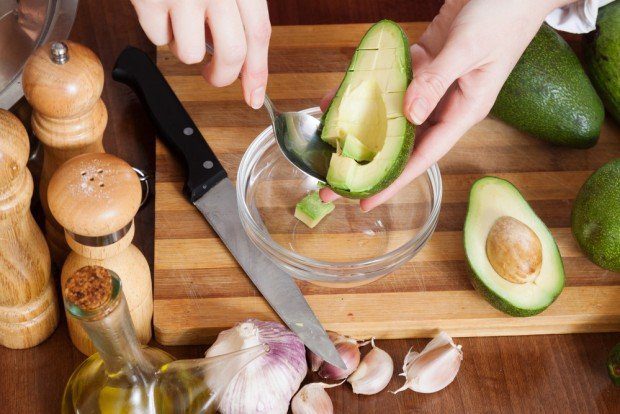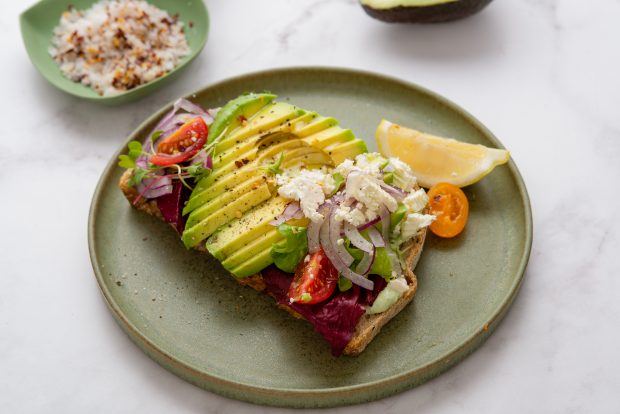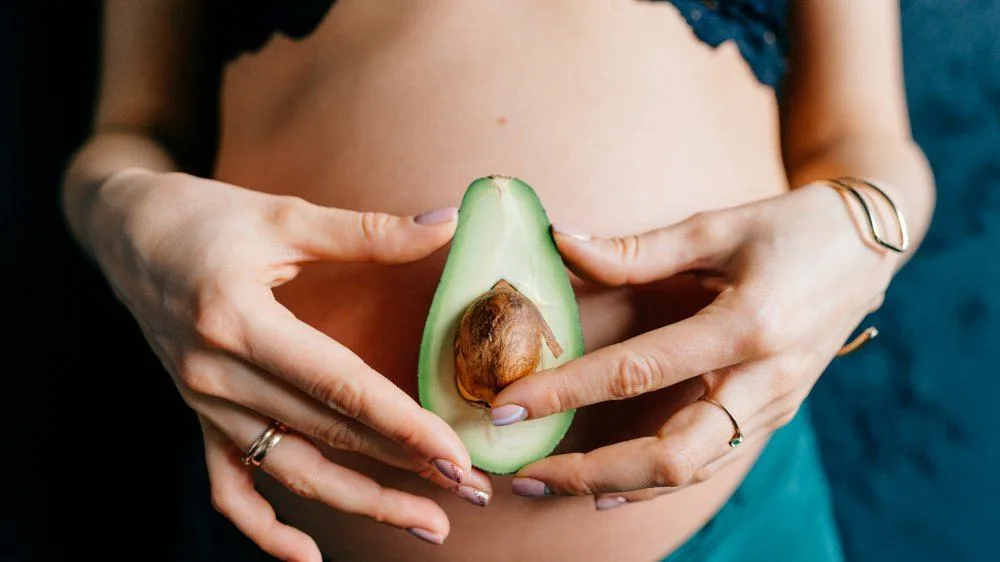Nutrition is important during every phase of your life, and it’s particularly important if you’re an expectant mother or if you already have children. A healthy child has its mother to thank, for looking after her nutrition from conception to the time she weens her baby from her breast milk. Indeed, a mother’s nutritional status throughout this critical period is a good predictor of her child’s health status, both in the short and long term.
Despite this, it is estimated that 20% to 30% of women of childbearing age may suffer from a vitamin deficiency. In fact, infertility, which may affect one in six couples1, has also strongly related to vitamin deficiency. As a result, it’s important for women of childbearing age to be urged to adopt a nutrient-rich diet (Academy of Nutrition and Dietetics2)
One of these foods is avocado as it contains key nutrients such as folate, fiber, monounsaturated fats, potassium, and carotenoids. Thanks to their nutritional profile, avocados can support maternal nutrition, birth outcome, and the quality of breast milk.3
Avocados for maternal health
Granted, there is not a lot of research on preconception nutrition. However, studies have indicated which dietary patterns can assist with fertility. For instance, research has shown that a Mediterranean-style diet (which consists of whole grains, fruits, vegetables, seafood, beans, nuts, and avocados) may support fertility outcomes in some women struggling to conceive.
This diet may be associated with a 70% decreased risk of ovulatory disorders in infertile women, with the greater intake of monounsaturated fats related to almost 3.5 times higher odds of live birth after embryo transfer.4

Iakov Filimonov/shutterstock
One important factor of the Mediterranean diet is its monounsaturated fat content. Whilst avocados are not part of the traditional Mediterranean diet per se, more than two-thirds (70%) of the fatty acid content of avocados are monounsaturated fatty acids, which supports the inclusion of avocados in this dietary pattern.5
Monounsaturated fatty acids make up almost 29% of the blood fatty acids of pregnant women, 18% of the umbilical cord blood, and 23% of the blood of a newborn.6
Monounsaturated fatty acid levels have also been shown to be significantly lower in small-for-gestational-age (SGA) newborns compared to those born appropriate for gestational age.7 One avocado contains 13 g of monounsaturated fatty acids, supporting the intake of this food during the pre-conception period.
Avos during pregnancy
We all know the list of foods one shouldn’t eat when they’re pregnant, but it’s also important to know which foods can help support a healthy pregnancy. Especially because these foods can provide the necessary nutrients required for fetal growth, red blood cell production, enzyme activity, bone growth, and brain and central nervous system development.
One of these foods is the delicious and versatile avocado, which boasts the nutrients that will help one maintain a healthy pregnancy. For one, avocados contain vitamin B6, which is not only vital for your baby’s developing brain and nervous system, but has also been found to improve nausea in those battling morning sickness.
Avos also contain potassium, which helps balance the fluids and electrolytes in your body’s cells during pregnancy. Lastly, another nutrient that can be found in avocados and is essential for a healthy pregnancy is folate. Folate is critical for the formation of red and white blood cells, normal cell division, and fetal growth in pregnancy. Poor maternal intake of folate is linked to increased rates of birth defects, low birth weight, preterm birth, and cardiac and neural tube defects.3
Avos during breastfeeding
If you’re going to be breastfeeding, we suggest that you keep including avos in your diet. This is because the fat in avocados helps both mother and baby absorb fat-soluble vitamins. This can then contribute to your baby’s developing brain health.

Also, over 50% of energy in breast milk is derived from fat, particularly oleic acid, which is a type of monounsaturated fatty acid, and the majority of monounsaturated fat found in avos is oleic acid.5
If that’s not enough, the carotenoid lutein rapidly increases in breastmilk, from 25% in the first few days of feeding to 50% by the end of the first month. Lutein is known as the “eye vitamin” and as avocado contains 370 mg of lutein, it is believed that it may be involved in infant eye development and have neuroprotective effects.3
An avo recipe for mothers
Whether you’re an expectant mother or already caring for a little one, we suggest adding an avo as part of your maternal nutrition. To get you started, enjoy this easy sliced avocado on toast recipe courtesy of The South African Avocado Grower’s Association (SAAGA).
Sliced avocado on toast
Recipe
- 1 slice bread of your choice, toasted
- 1/2 ripe avocado, halved, seeded, peeled and thinly sliced
- 1 Tbsp avocado oil
- 1 tsp sesame seeds
- 1/4 teaspoon crushed red pepper flakes, optional

Sliced avocado on toast/The South African Avocado Grower’s Association
- 2-4 rings red onion, marinated in lemon juice for 2 minutes (optional)
- Kosher salt and freshly ground black pepper, to taste
- Lemon wedges to serve.
Description
- Lay the avocado slices on the toast and mash gently with a fork.
- Drizzle with avocado oil and top with sesame seeds, red pepper flakes, and “pickled” red onion if using. Season with salt and pepper, to taste.
- Serve immediately.
References
1. Mousa A, Naqash A, Lim S. Macronutrient And Micronutrient Intake During Pregnancy: An Overview of Recent Evidence. Nutrients. 2019;11:443.
2. Position of the Academy of Nutrition and Dietetics: Nutrition and Lifestyle for a Healthy Pregnancy Outcome . Journal of the Academy of Nutrition and Dietetics. 2014;114(7):1009-1103.
3. Comerford KB, Ayoob KT, Murray RD, Atkinson SA. The Role Of Avocados In Maternal Diets During The Preconceptional Period, Pregnancy, And Lactation. Nutrients. 2016;8:313.
4. Chavarro JE, Colaci DS, Afeisch M, Gaskins AJ, Writy D, Toth TL, Hauser R. 28th Annual Meeting – Dietary Fat Intake and in-vitro Fertilization Outcomes: Saturated Fat Intake is Associated with Fewer Metaphase 2 Oocytes. Human Reproductive. 2012;27.
5. Ford NA, Liu AG. The Forgotten Fruit: A Case for Consuming Avocado Within the Traditional Mediterranean Diet. Frontiers of Nutrition. 2020; 7: 78.Doi: 10.3389/fnut.2020.00078.
6. Agostoni C, Galli C, Riva E, Rise P, Colombo C, Giovannini M, Marangoni, F. Whole blood fatty acid composition at birth: From the maternal compartment to the infant. Clinical Nutrition. 2011;30:503–505.
7. Agostoni, C.; Marangoni, F.; Stival, G.; Gatelli, I.; Pinto, F.; Rise, P.; Giovannini, M.; Galli, C.; Riva, E. Whole blood fatty acid composition differs in term versus mildly preterm infants: Small versus matched appropriate for gestational age. Pediatr. Res. 2008, 64, 298–302.



![women [longevity live]](https://longevitylive.com/wp-content/uploads/2020/01/photo-of-women-walking-down-the-street-1116984-100x100.jpg)










